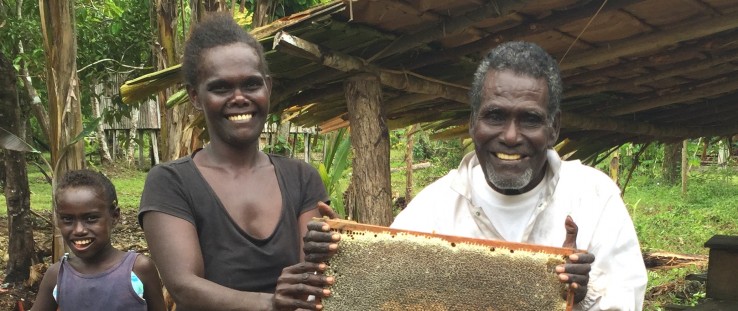 Mendana Tutikera of Pine village in the Solomon Islands harvests honey. With income from his bees, he pays school fees for his granddaughter, far left.
S. Gulick, USAID
Mendana Tutikera of Pine village in the Solomon Islands harvests honey. With income from his bees, he pays school fees for his granddaughter, far left.
S. Gulick, USAID
 Mendana Tutikera of Pine village in the Solomon Islands harvests honey. With income from his bees, he pays school fees for his granddaughter, far left.
S. Gulick, USAID
Mendana Tutikera of Pine village in the Solomon Islands harvests honey. With income from his bees, he pays school fees for his granddaughter, far left.
S. Gulick, USAID
Far up a river, deep in a rainforest, Jacob Manana, 27, of Rarakisi village in the Solomon Islands, tends to his backyard beehives.
Isolated and accessible only by boat, Rarakisi offers few opportunities for people to earn a living. Prior to beekeeping, Manana, like his neighbors, relied entirely on produce from his garden to put food on the table.
“I was always running to my brothers and sisters for help,” says Manana.
Despite these hardships, Rarakisi’s abundance of trees and thick vegetation has made the village a bright spot in a country challenged with rampant deforestation.
Rainforests used to cover most of the Solomon Islands. For decades, though, foreign commercial logging companies have been paying royalties to the tribes to harvest trees from their customary lands. Over time, this has depleted much of the forests. In the past five years, timber has been harvested at a rate seven times what is considered sustainable.
Deforestation now threatens the lives and well-being of people throughout the Solomon Islands because there are fewer trees to protect villages from rainfall and flooding hazards that are only getting stronger due to climate change. Today, one storm can displace families and ruin crops. The tribes of Rarakisi saw this destruction in surrounding villages and resolved to not let this happen to them.
Local Heroes Emerge
The Pacific Islands are on the front lines of global climate change and natural disasters. While civil society organizations have been developing solutions to adapt to these new challenges, many lack the funding and management needed to make lasting impact.
USAID is addressing this challenge through its Pacific-American Climate Fund (PACAM). Launched in 2013, the $24 million fund awards grants to promising civil society organizations in 12 Pacific countries to implement and scale up climate-resilient, communitylevel adaptation measures. PACAM also trains organizations to improve their management and financial practices so projects can last long after USAID’s funding is complete.
ln 2015, USAID’s PACAM project awarded a $168,000 grant to the Natural Resources Development Foundation (NRDF) to scale up its projects that assist villages to sustainably manage their forests and reduce their vulnerability to floods, droughts and other climate-induced events.
The project works with communities to help them manage and conserve their forests themselves rather than selling logging rights to commercial interests. The project also helps the communities to certify their timber, ensuring the forests provide sustainable environmental, social and economic benefits. Though it could take years, these measures are expected to help turn the tide on deforestation in the Solomon Islands.
One component of the project, however, is having an immediate impact on people’s lives. The project offers viable livelihood options for people like Manana, in hopes of steering them away from destructive logging practices. While some villagers are taking up nature tourism projects, others, including Manana, now run honeybee farms in their backyards.
Sweet Taste of Success
NRDF provides starter bee colonies for people like Manana to harvest honey. “[Beekeeping] ... gives people an alternative to logging, which endangers the environment and therefore endangers people,” says Wilko Bosma, NRDF team leader. In this way, beekeeping can contribute to more sustainable forest management.
“I have been selling my honey in Taro town since 2015, and demand is high because of its unique taste,” says Manana. His earnings of nearly $1,300 per year allowed him to build a house for his family.
With “honey money,” as locals call it, flowing throughout the village, NRDF expanded the beekeeping activity to 10 villages using a portion of USAID’s PACAM grant. The funding also supplied upgraded equipment to boost productivity of existing beekeepers. In the first quarter of 2016, the beekeepers of Choiseul province produced more honey than they had produced in all of 2015. Manana multiplied his one beehive into four hives.
The Greater Good of Honey
With the communities’ increased incomes, NRDF has been encouraging them—especially women—to manage their money through savings clubs. “The women are committed to forest management and conservation. They link a healthy forest with their livelihoods, rather than seeing the forest as a fast cash earner,” says NRDF’s Bosma.
Iulyn Kapi, 30, a woman from Boeboe village, is the beekeeping project coordinator and chair of the women’s savings club in her community. She is one of Boeboe’s youngest female leaders among the male-dominated society. “The savings allowed my family to start new businesses,” Kapi says. One family member started a fuel depot, while another now sells baked goods.
By the end of 2015, more than 150 women comprised eight new savings clubs. Collectively, they saved nearly $9,000. Membership is rising, and they are looking toward microlending. “We must work together like bees—as a team,” the women say.
The project’s success is tied to the rewards it offers to villagers. And it’s not just about the honey. When it comes to turning people from destructive logging practices, “the ‘income’ message is stronger than the ‘climate change warning’ message,” explains NRDF’s Bosma.
“Once beekeepers sell honey and earn, they understand the value of this work. The same can be said for timber producers finding out the real value of trees,” he says.
NDRF is looking to replicate its projects in other provinces in the Solomon Islands, and to advance government policy on natural resource development.
Rise of the Region
PACAM-supported projects now flourish throughout the Pacific. In the Federated States of Micronesia, PACAM awarded a grant to a project that introduced aquaculture to a community affected by dwindling fish stocks. In the same country, PACAM supports a project that teaches families and schools how to grow backyard gardens, which helps them become less dependent on surrounding food supplies, and thus more resilient to disasters and climate change.
To date, USAID’s PACAM has awarded 23 grants totaling more than $9.6 million.
“Officials from many of the Pacific Island nations report that these projects are game changers for economic advancement,” said Richard Edwards, regional coordinator for USAID’s Pacific Islands regional office, which reports to and receives support from USAID’s mission in the Philippines. “USAID is a proud partner in helping to lift these nations into more prosperity and self-reliance.”
As similar projects take off throughout the Pacific, Manana keeps tending to his beehives. Soon, he will expand his operation to 10 hives.
Beekeeping alone cannot save the forests of the Solomon Islands. Just the same, aquaculture and backyard farming will not protect Micronesia from drought or typhoons. But these actions, multiplied many times over by champions within communities, civil society, and local and national governments, can help the Pacific Island nations adapt to their changing climate and take their future into their own hands.
Dorelyn Jose is a communications and outreach coordinator with the Pacific-American Climate Fund. Sarah Lawless, a project management consultant with the fund, also contributed to this report.








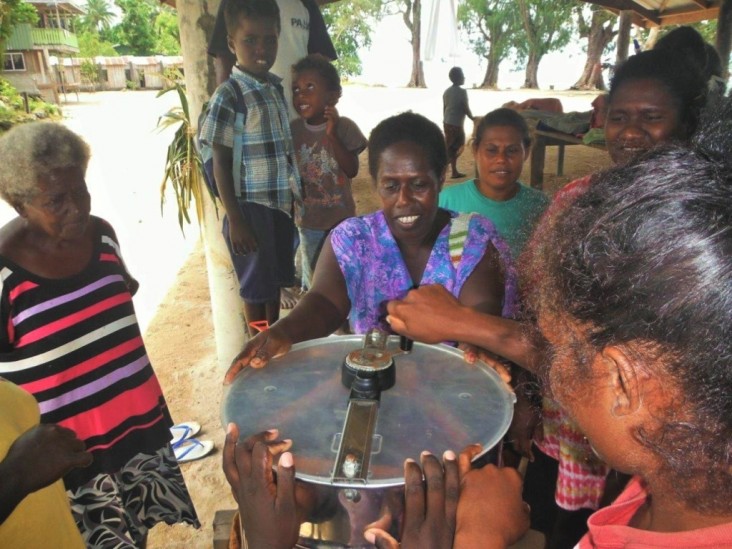
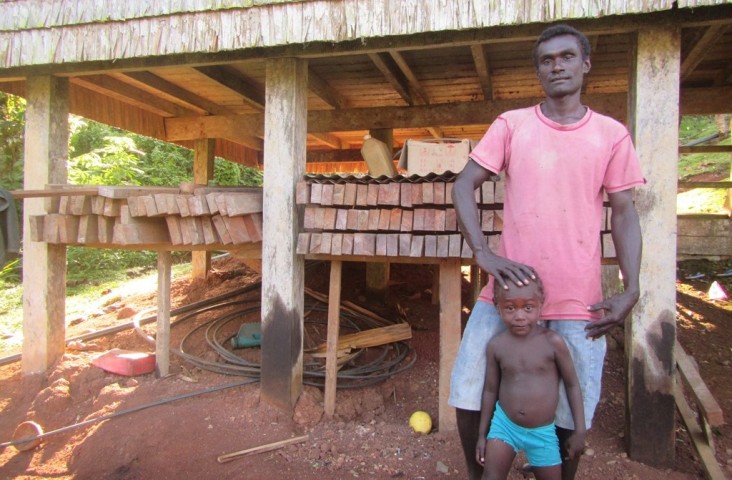
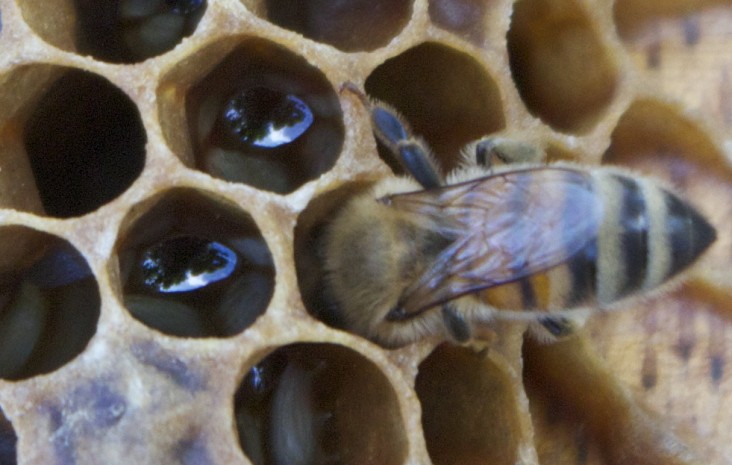
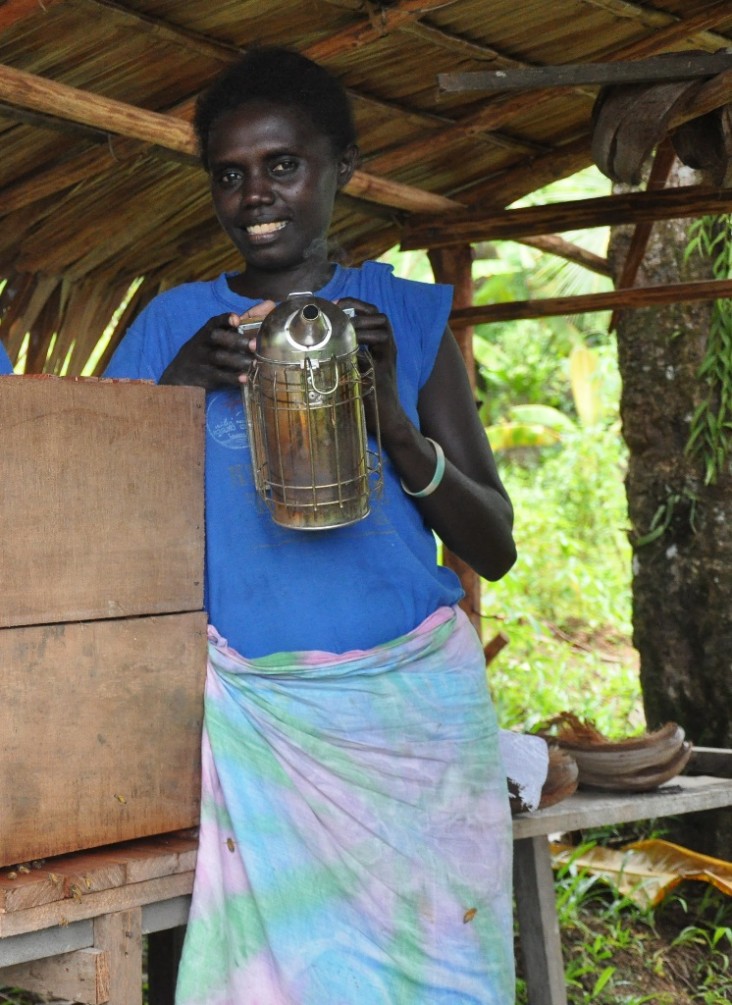
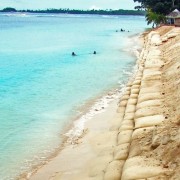
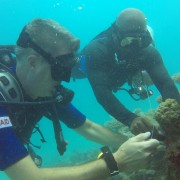
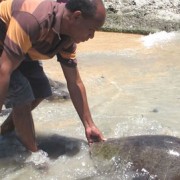
Comment
Make a general inquiry or suggest an improvement.